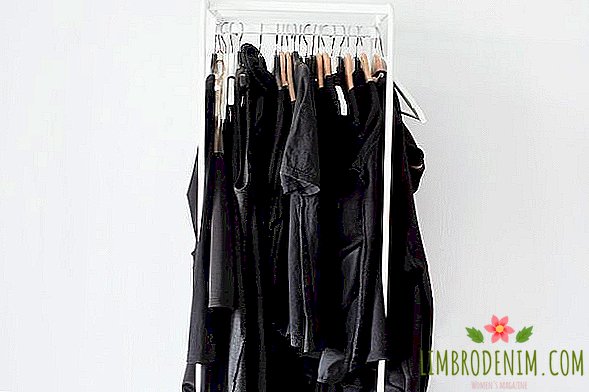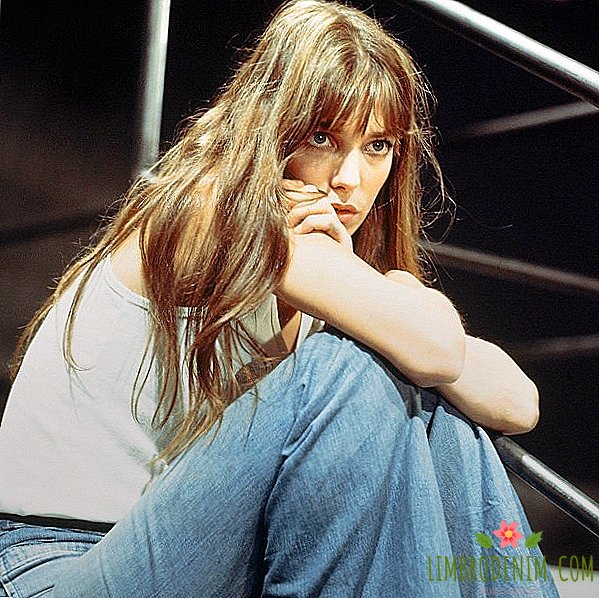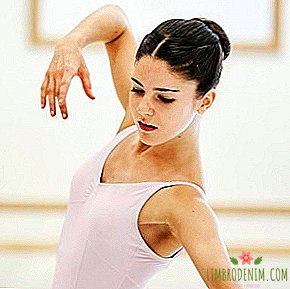Brutal games: Why you can not manipulate someone else's disability

ALEXANDRA SAVINA
This week in Russia continue to discuss "Eurovision": Today Natalia Vodianova launched a petition demanding to allow a Russian participant, a singer with a disability, Yulia Samoilova, to appear in the competition. Last week, the security service of Ukraine forbade Samoilova to come to the territory of the country hosting the competition. The entry for the singer is closed for three years: in 2015, she performed in the Crimea, where she flew in from Moscow - Ukrainian legislation allows entering the peninsula only from the Ukrainian territory.
The organizers of Eurovision - for the first time in the history of the competition - offered the Russian woman to perform remotely. True, Channel One refused the offer: its representatives believe that this "contradicts the very meaning of the event" - whatever that means. Vice Prime Minister of Ukraine Vyacheslav Kirilenko called the situation with Yulia Samoilova a provocation and suggested that Russia send another participant to the contest. The Russian side insists on Samoilova: even if the girl does not participate in the contest in May, she will still represent Russia at Eurovision in 2018.
Eurovision has long ceased to be just a musical competition - all the more so since the participants perform commercial pop songs, which say little about modern music, but fit well into broadcasting. Against this background, most countries are trying to stand out at the expense of the show: many go along a relatively simple path and use the capabilities of projectors, others put up eccentric participants for the competition. Sometimes performances at Eurovision also perform a social mission. For example, two years ago Monika Kushinska spoke from Poland, after an accident she had to move in a wheelchair — she became the first participant with a disability. A large-scale television competition is also a great way to draw attention to minority representatives, as evidenced by the example of Conchita Wust's drag strip.
Julia Samoilova is an unexpected choice for Russian Eurovision. Most often, the country in the competition is represented by famous performers, and although on the account of the Samoilova television competition "Factor A" and participation in the opening of the Paralympic Games in Sochi, the popularity of Sergey Lazarev or Polina Gagarina is far away. But the slogan of the competition this year is “Celebrate diversity”, and the singer is the best way to reflect his spirit.
Samoylova’s participation in the competition automatically becomes a political gesture.
Eurovision appeared in the fifties of the last century, and although over the years the competition has changed a lot, the message remains the same. The organizers wanted to rally Europeans after the tragic events of the Second World War - Eurovision is considered an event free from politics. Although the rules clearly prohibit turning statements into political statements, from time to time it still happens. For example, last year, the Ukrainian participant Jamala won with a song about the deportation of the Crimean Tatars in 1944 (the singer herself, however, does not consider her political - and the organizers of the competition agree with her). It seems that not a single large-scale event with the participation of Russia can be free from politics - and Eurovision (especially when it takes place on the territory of Ukraine) is no exception. Whether we like it or not, the situation is such that the participation of Samoilova in the competition automatically becomes a political gesture.
You really can hear disability in Russia from the mouth of the singer herself: she says on the official website that she was bullied at school, that the workers of the house of culture where she studied vocals did not allow her to participate in concerts due to her disability . She admits that she was repeatedly not allowed anywhere because of the wheelchair - for example, in the subway in St. Petersburg.
People with disabilities are poorly represented in the media and because of this they often encounter an ambiguous and inadequate reaction: recall the recent case of "A Minute of Glory," where Vladimir Pozner called the performance of a dancer with a disability a "forbidden method." Loud talk about disability is rarely conducted - the only exception is the recently released film “Love with Restrictions” (although the main roles are still played by actors who have no disability). It seems that the participation of Yulia Samoilova in Eurovision could be a great success: such decisions change the attitude of society towards "invisible" people. On the other hand, one glossy presentation would hardly make the same society think about the problems of the “accessible environment” and the difficulties that people with disabilities face in Russia.
Over the last week, when Russia's participation in Eurovision was under threat, these questions faded into the background, and the main thing was different: what was the meaning of the Russian organizers in Yulia's performance? Did they really want Russia to be represented by a singer with a disability (and why did they refuse to perform remotely)? Or is the singer used to make a loud statement about the situation with Ukraine - and the disability is just another tool here?
In TED's famous performance, comedian Stella Young spoke a lot about the stereotypes that people with disabilities face. "When I was fifteen, a member of the local community contacted my parents and wanted to nominate me for a public award for achievements," she said. "My parents answered:" Great, but there is a clear problem: she did not achieve anything. " Young said that people with disabilities often become victims of objectification: they are perceived not as living people, but as objects that should inspire others. Disability is considered their main and almost the only possible achievement - that is why students believe that a person in a wheelchair should read a motivational speech for them, and cannot believe that he will actually become their lecturer.
The situation of Yulia Samoilova is different: hardly anyone doubts that her participation in the competition is a serious achievement. But the singer is still treated as an object, as a means to achieve a certain goal - and this goal correlates little with the needs and problems of people with disabilities in Russia.
Attention is paid not to whether the singer will perform, but to whether she gets into the "forbidden" territory.
In an interview, Julia says that Channel One offered her to participate in the contest - there was no open audience vote this year. The fact that the singer can represent the country in competition, she was told in 2014 - it was only a matter of time. Partly because of this, when it became known about Channel One’s decision, the discussion almost immediately shifted from music to politics: Yulia’s choice of song and abilities are much less talked about whether they will let her go to Ukraine, what this step means for international relations why they chose her and whether the whole thing is true is in her disability, and not in the vocal data of the singer.
A live person is lost for discussion and controversy: everyone knows that participation in Eurovision was Yulia’s childhood dream, but no one can answer for sure which way out of the situation seems to be the most correct and appropriate for her now. The Russian organizers of the contest seem to be doing everything possible so that Julia could speak at Eurovision - and even invited her to participate in the event next year without any selection.
But in fact, the image of the country and its political position are put higher: if Julia speaks, then only on favorable terms for the country (and the channel). The most important thing here seems to be to defend a principled position: attention is paid not to whether the singer will perform in principle (for example, to sing live remotely), but to whether she will enter the territory to which she has been banned. Although Samoilova herself in one of the interviews said that she sees no point in boycotting Eurovision: “I don’t understand why. This is a vocal competition. Music is music. What would have changed if they refused? Relationship will immediately improve? We will be given a medal? Hardly. Personally for me this competition is related to music. "
As a result, a singer with a disability is a victim of a situation that, it would seem, on the contrary, should help her to make her dream a reality. The organizers give her a platform for expression, but on their own terms, they manipulate her disability and use it as an argument in a political dispute. Talking about inclusiveness becomes possible only when people with disabilities begin to be perceived as ordinary people, with all their successes, failures, desires and needs, and not as a tool to achieve a goal or an object for inspiration.
cover: jsvok.ru




